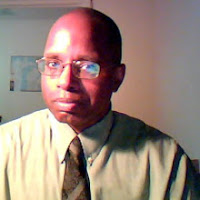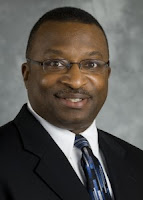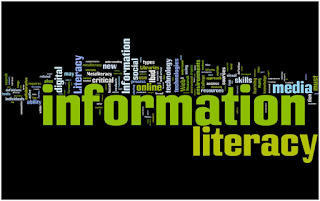In the Context of Diversity: Thoughts about a Recent Library Fellowship Application
 |
| 1. Johnnie R. Blunt (Blog Author) |
Diversity Counts!
 |
| 2. Gerald Holmes |
 |
| 3. E. J. Josey |
I described how the Catholic call to community service informs my professional practice. I focused on information literacy instruction. Several weeks ago, I announced that I practiced an evangelical librarianship. I bring the good news to my patrons. According to my Gospels, knowledge does not reside on an expensive proprietary database. Knowledge is not the result of a Google search. Knowledge is the active process of interpreting and questioning one's lived experiences, one's epistemology against the experiences and epistemological assumptions of others. In other words, knowledge is dialectical. It is constructed within the epistemological conflicts, agreements, and complications among people. This is my service to others: I teach patrons how to liberate themselves from mental shackles of positivist assumptions.
This liberation is especially important to me. It took me many years to no longer internalize demeaning racial and gender stereotypes. Only after I started questioning "facts" and "authority" did I realize that these stereotypes were not apolitical or natural. I learned how to become an agent, instead of a "marked" object. I serve others by showing them how to transform themselves from object to agent. I think information literacy instruction is the medium of such transformation.
I hope that the search committee will be impressed by my statement. I hope that I will be part of the final candidate pool. Yes--I hope that I am hired for the position. Regardless of the outcome, I know that drafting and revising a diversity statement prompted me to carefully examine my own needs and desires in terms of professional development.
It helped me find me. And that alone was worth writing and revising a 300-500 word essay.
NOTES
All images on my blog, including those in this entry, are used according to section 107 of the United States Copyright. For more information, please consult this webpage: http://www.copyright.gov/fls/fl102.html
1. Image from library of blog author
2. Image from ACRL Residency Interest Group. Retrieved 4 April 2013 from http://acrl.ala.org/residency/?attachment_id=3711
3. E. J. Josey Image from University of Pittsburgh Department of Library and Information Science. Retrieved 4 April 2013 from http://www.sis.pitt.edu/~ejjosey/.


Comments
Post a Comment